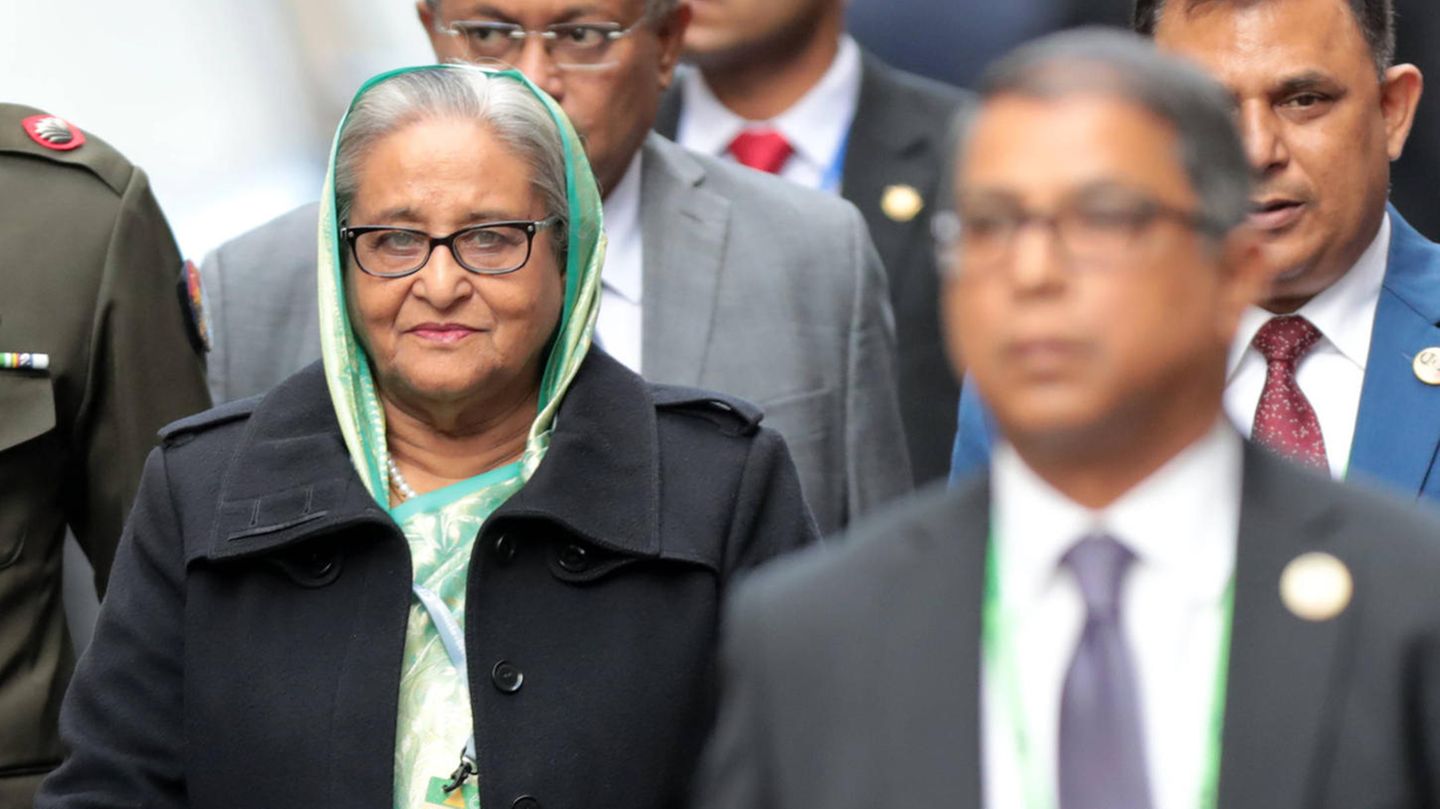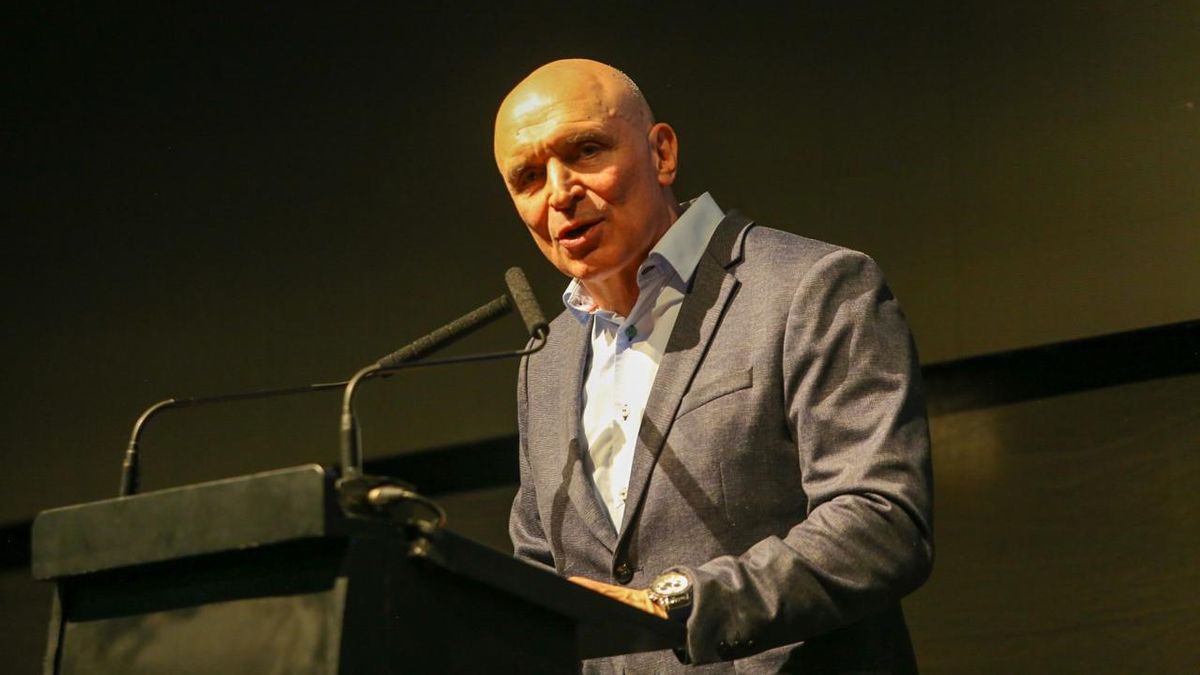After hundreds of deaths, the brutal protests in Bangladesh have reached a climax: Prime Minister Sheikh Hasina has apparently fled.
One day after the violent clashes during protests in Bangladesh, Prime Minister Sheikh Hasina has left the country and resigned from office. This is reported by several media outlets. The country’s army chief confirmed in a statement to the nation that Hainsa had resigned from office. A transitional government will be formed, it said. According to a report in the daily newspaper “Prothom Alo” based on sources, Hasina is said to have fled to India by helicopter. She wanted to record a speech but was no longer able to do so, reports the AFP news agency.
Demonstrators then stormed the government headquarters in Dhaka. Television images on Monday showed thousands of people storming the government palace in the capital Dhaka.
Bangladesh’s Prime Minister criticized for oppression and abuse
Hasina’s escape follows long-running, bloody protests in the country, which were initially directed against a quota system for public sector jobs that critics said favored Hasina’s supporters. Later, participants demanded the resignation of the head of government, who has been in office since 2009, and her cabinet.
The 76-year-old head of government was confirmed in office in January in an election boycotted by a large part of the opposition. Her government is accused of, among other things, abusing state institutions to maintain its own power and suppressing government critics – even to the point of extrajudicial killing of opposition members.
People from all walks of life joined the protest movement, including film stars, well-known musicians and former generals who expressed their support. 47 companies in the textile industry, which is important for the country’s economy, also expressed their solidarity with the demonstrators.
In view of the tense situation, Hasina’s son had called on the country’s security forces before the palace was stormed to prevent any coup attempt against his mother. “Your duty is to ensure the security of our people and our country and to uphold the constitution,” said Sajeeb Wazed Joy, who lives in the USA, on the online network Facebook.
Bloody clashes in Dhaka
On Sunday, there were clashes between supporters and opponents of Hasina’s party, the Awami League, in numerous cities. The party’s office was also attacked. In the northwest of the country, twelve police officers were beaten to death, said police representative Bijoy Bosak. The Reuters news agency counted at least 300 deaths based on recent reports from the police, hospital doctors and officials.
At least eleven people were killed and dozens injured in street battles in the capital Dhaka, police and eyewitnesses said on Sunday. Two construction workers were killed on their way to work in riots in the city of Munsiganj on the same day, it was reported. Hundreds were also injured.
“Those who are protesting on the streets now are not students, they are terrorists who want to destabilize our nation,” said Hasina. She appealed to her fellow citizens to react with a firm hand. Demonstrators had blocked important roads. The police tried to disperse the demonstrators using tear gas, stun grenades and rubber bullets. The Internet was shut down across the country.
Indefinite curfew and compulsory leave
These were the worst riots in the South Asian country since Hasina’s victory in elections in January, which were boycotted by the main opposition party.
On Sunday, the government imposed a curfew. It will remain in effect indefinitely. From Monday, all citizens will also be on a three-day holiday.
Last month, at least 150 people were killed in politically motivated violence in Bangladesh. Around 10,000 people were arrested by the police. The controversial quota regulations were largely overturned by a court, but the students are now demanding justice for the families of those killed in the protests. Critics of Hasina had accused the government of using excessive violence in suppressing the protests. The government denies this.
Note: This article is constantly updated.
Source: Stern
I have been working in the news industry for over 6 years, first as a reporter and now as an editor. I have covered politics extensively, and my work has appeared in major newspapers and online news outlets around the world. In addition to my writing, I also contribute regularly to 24 Hours World.




